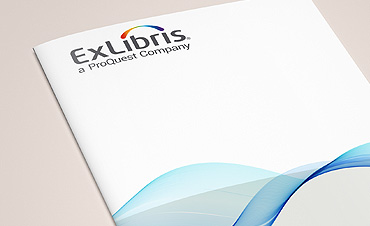May 12, 2008
Version 2.0 continues to meet user expectations for a quick, easy, effective, and engaging discovery and delivery experience
Jerusalem, Israel – May 12, 2008. Ex Libris Group today announced the general release of version 2.0 of the Company’s Primo® discovery and delivery solution. The result of close collaboration with the Primo customer community, version 2.0 offers enhanced searching capabilities, including the ability to search in very large collections; improved usability and accessibility of the user interface; and easier system configuration and customization.
This release addresses several key areas:
- Language support: A range of European and Asian interface languages have been added to enhance the user experience for the growing number of Primo customers in Europe and Asia.
- Searching: Version 2.0 provides improved exact-title searching; additional linguistic algorithms and dictionaries; optimized ranking of grouped (FRBRized) records; the identification of frequently misspelled words; enhancements to the ”did you mean” mechanism, which ”learns” search phrases based on past user queries; and the presentation of results ordered by popularity.
- Customization: A choice of user interface layouts is available.
- Services: The addition of services such as the sending of item information to users by cell-phone text messages complements the discovery process and enhances the user experience.
- Scale: Primo 2.0 can harvest and index very large collections.
- Software development kit (SDK): In adherence to the Ex Libris open platform strategy, Primo now includes an application programming interface (API) for 50 services. This API facilitates the customization of Primo and enables customers to develop code extensions that can be shared with other members of the Primo community.
- ”Deep Search”: A new component enables Primo to leverage the search engines of other repositories and to display results retrieved from these repositories along with local results. Furthermore, the results obtained through the Deep Search component are ranked by relevance and displayed using faceted categorization.
”We are pleased to be part of the first group of Ex Libris customers to implement Primo version 2.0,” comments Robert Gerrity, director of library systems for Boston College Libraries. ”The fact that we are able to develop our own unique applications using Primo development tools and to share these with other Primo users makes this product exciting to us.”
Version 2.0 functionalities have strategic significance for our users,” explains Gilad Gal, Ex Libris Primo product manager. ”The emphasis we have placed on scalability has enabled institutions with extremely large collections—such as the British Library—to make the Primo solution a focal point in their software environment. The Royal Library of Denmark, a Primo development partner, is already using the Deep Search architecture to present items found in the Digital Article Database Service (DADS) repository of 65 million articles, housed in the Technical Information Center of Denmark (DTIC). These items are presented alongside items collected from the library’s local system, indexed in Primo.”
”Ex Libris customers have expressed their interest in developing open-source components as add-ons for the Primo platform and sharing them within the community,” Gal adds, ”and we enthusiastically support these initiatives.”
About Ex Libris:
Ex Libris is a leading provider of automation solutions for academic libraries. Offering the only comprehensive product suite for electronic, digital, and print materials, Ex Libris provides the efficient, user-friendly products that serve the needs of libraries today and will enable them to transition into the future. Ex Libris maintains an impressive customer base consisting of thousands of sites in more than 70 countries on six continents.
Dedicated to developing creative solutions in close collaboration with our customers, Ex Libris enables academic, national, and research libraries to maximise productivity and efficiency and, at the same time, greatly enhance the user experience. By empowering users to discover and obtain the information they need, libraries ensure their position as the bridge to knowledge.
For additional information on Ex Libris Group, see https://exlibrisgroup.com/.




